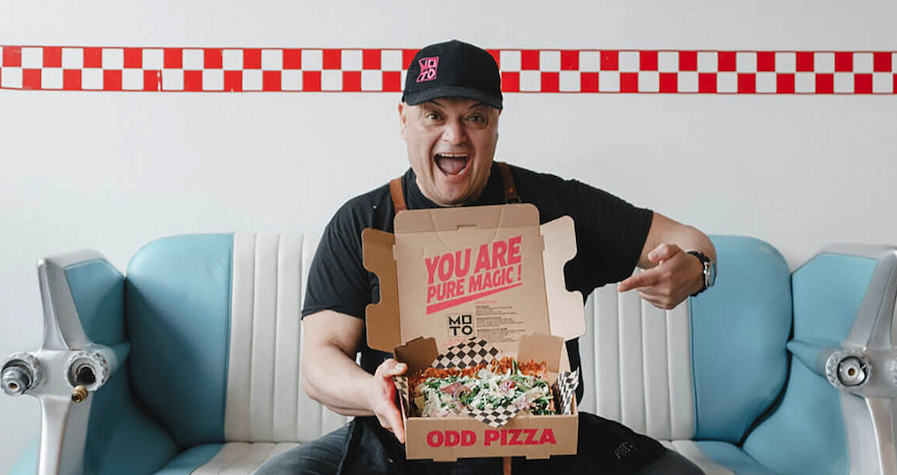Moto Pizza Founder Lee Kindell is no stranger to automation.
Kindell opened the Seattle-based pizza hub three years ago and has since tested and implemented various forms of robotics.
It all started when he hurt his arm and used an automated dough mixer. Hesitant at first, Kindell said he learned that the quality of what he was doing didn’t change because “the intention of what I wanted to create stayed the same,” he said.
One of his first technology partners was the company Picnic, which creates pizza robots that dispense cheese, sauce, and toppings. This was a smart move for Kindell as it helped scale his production amid growth.
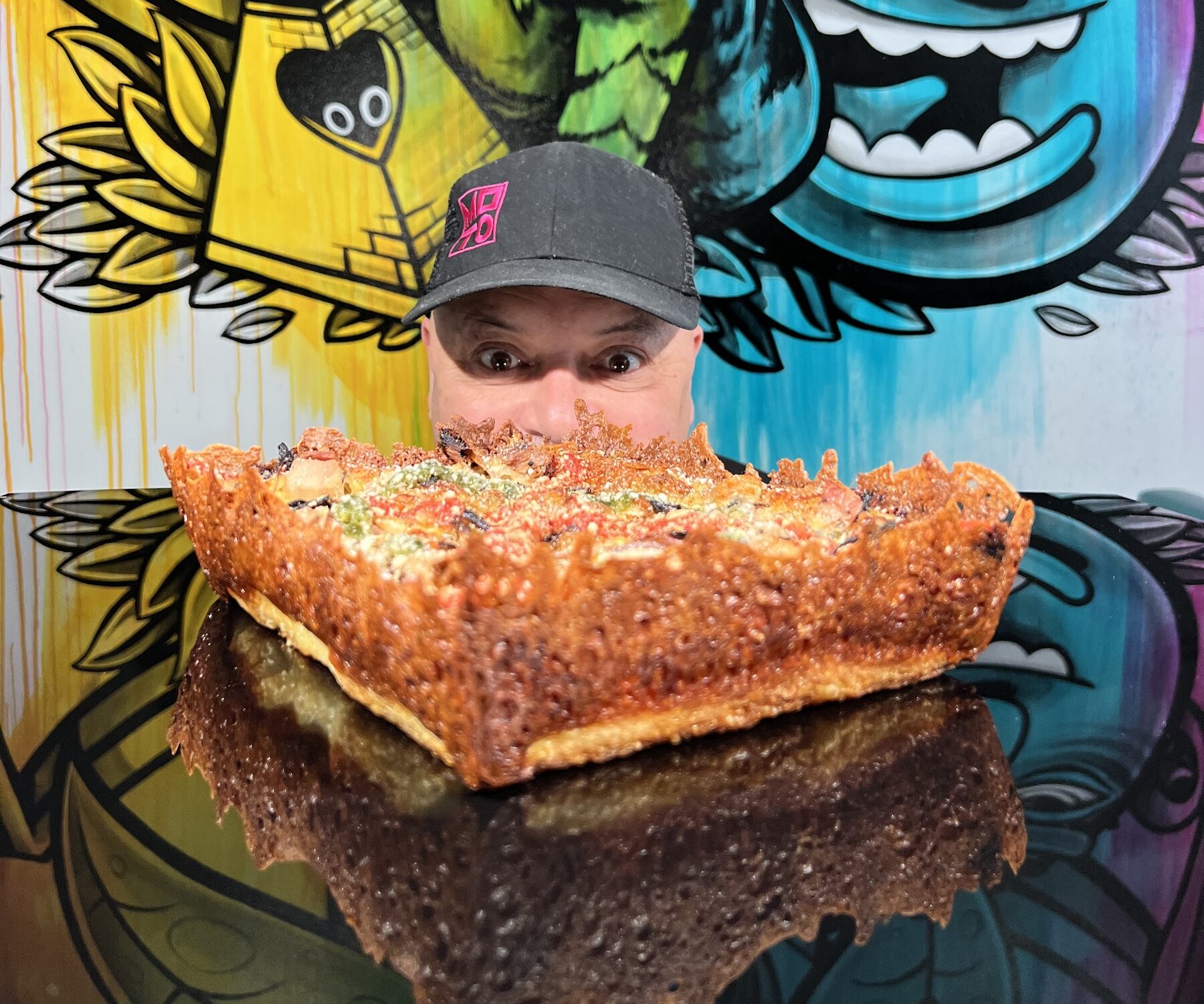
Moto Pizza Founder Lee Kindell.
Moto Pizza eventually opened three more locations with another underway. It also opened within T-Mobile Park in Seattle and Indian Wells Tennis Garden in California—and inked a deal with the Hollywood Bowl in Los Angeles.
At stadiums, Picnic has enabled Moto Pizza to have one person make 1,000 pizzas every three hours, a task that typically requires many hands at such large locations.
“The labor cost, is a really big factor. But I am also able to take those 10 people and put them into other parts of the operation that made us improve even more of what we were doing,” he said.
Kindell is also eying sky-high deliveries with Zipline, with plans to launch drone delivery.
Moto teams with Cibotica
Most recently, he’s investing in automating another portion of his menu: salads. Kindell has teamed up with the Canadian-based food robotics company Cibotica to become the first trial partner of its automated salad and bowl makeline.
Dubbed Remy, the system will deploy in July at the chain’s Belltown location in Seattle.
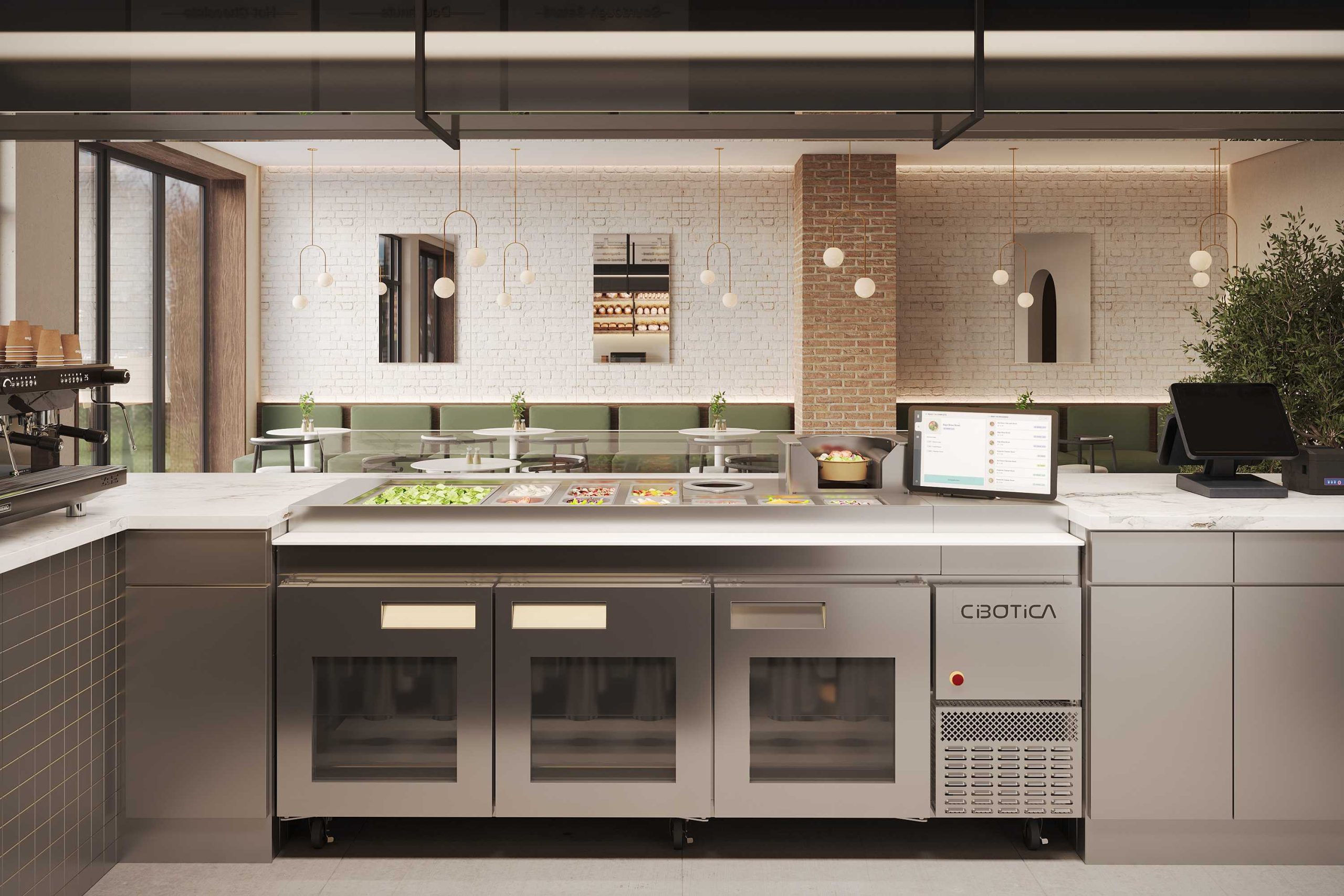
Remy, an automated salad and bowl makeline by Cibotica.
The compact modular makeline is designed to be incorporated into existing operations without major disruptions to kitchen layouts.
About the size of a pizza-cooler machine, its AI-driven technology allows for ingredients to dispense automatically, while bowls travel along a conveyor belt. It collects and weighs portions of each ingredient, can track inventory, and provide data insights and sales reports.
Cibotica CEO and Founder Soroush Sefidkar said the debut of Remy has been years in the making.
Sefidkar started in the world of robotics 15 years ago. First in agriculture, then security, until he recognized a massive opportunity in the restaurant industry.
The move into food service was further backed by Cibotica co-founder Ashkan Mirnabavi, a former engineer turned restaurant operator. He knew first-hand the struggles that come with running a restaurant.
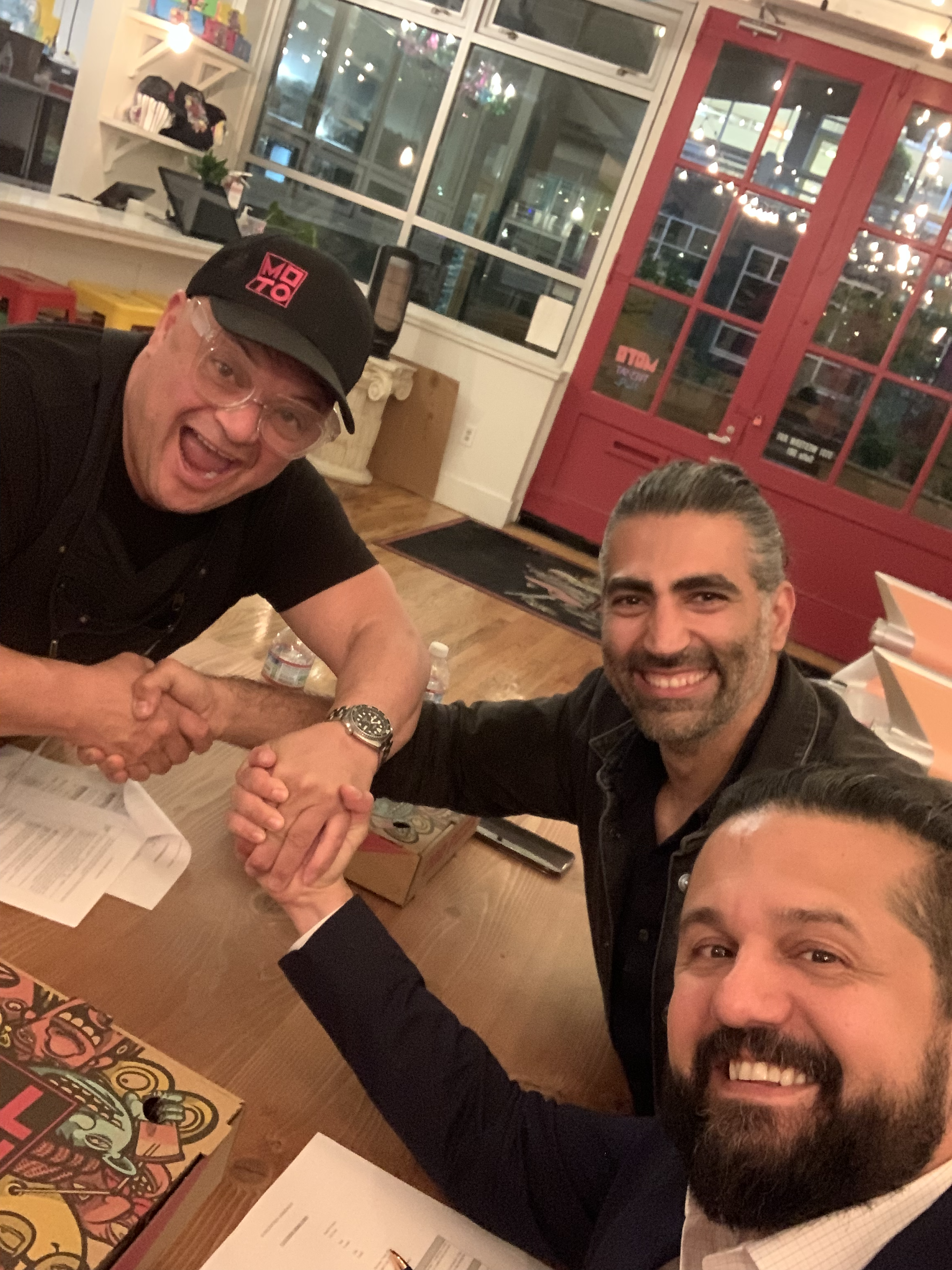
Lee Kindell and Cibotica co-founders Soroush Sefidkar and Ashkan Mirnavabi.
The two, along with their third co-founder, Daryoush Sahebjavaher, who also has a background in engineering robotics, pondered “what is most crucial for a restaurant operator” regarding automation.
“There should be no changes to their operations, the restaurant layout, or the way their menu is prepared,” said Sefidkar, adding, “we need to think like restaurant operators.”
That thought process is what attracted Kindell. “They come from a perspective that isn’t just about building a robot for technology. They consider the human factor,” he said.
Beyond in-house production, Remy aims to assist in managing digital orders. The company emphasizes its capability to receive orders from various sources, including POS systems and third-party delivery services.
The exact cost of installation was not disclosed. The company is currently raising money for its next round of investment, in September.
Restaurant robots make waves
Competition continues to heat up in the restaurant robotics space. For automated makelines, the most notable players are Hyphen, which is working with Chipotle, and Sweetgreen, which continues to test its Infinite Kitchen.
This doesn’t worry the Cibotica team. They see opportunity in the smaller to medium-sized markets.
“Our approach and the go-to market is a little different. With the flexibility that we have on our dispensing and adaptability to their menu and space, we can go capture that part of the market,” said Sefidkar.
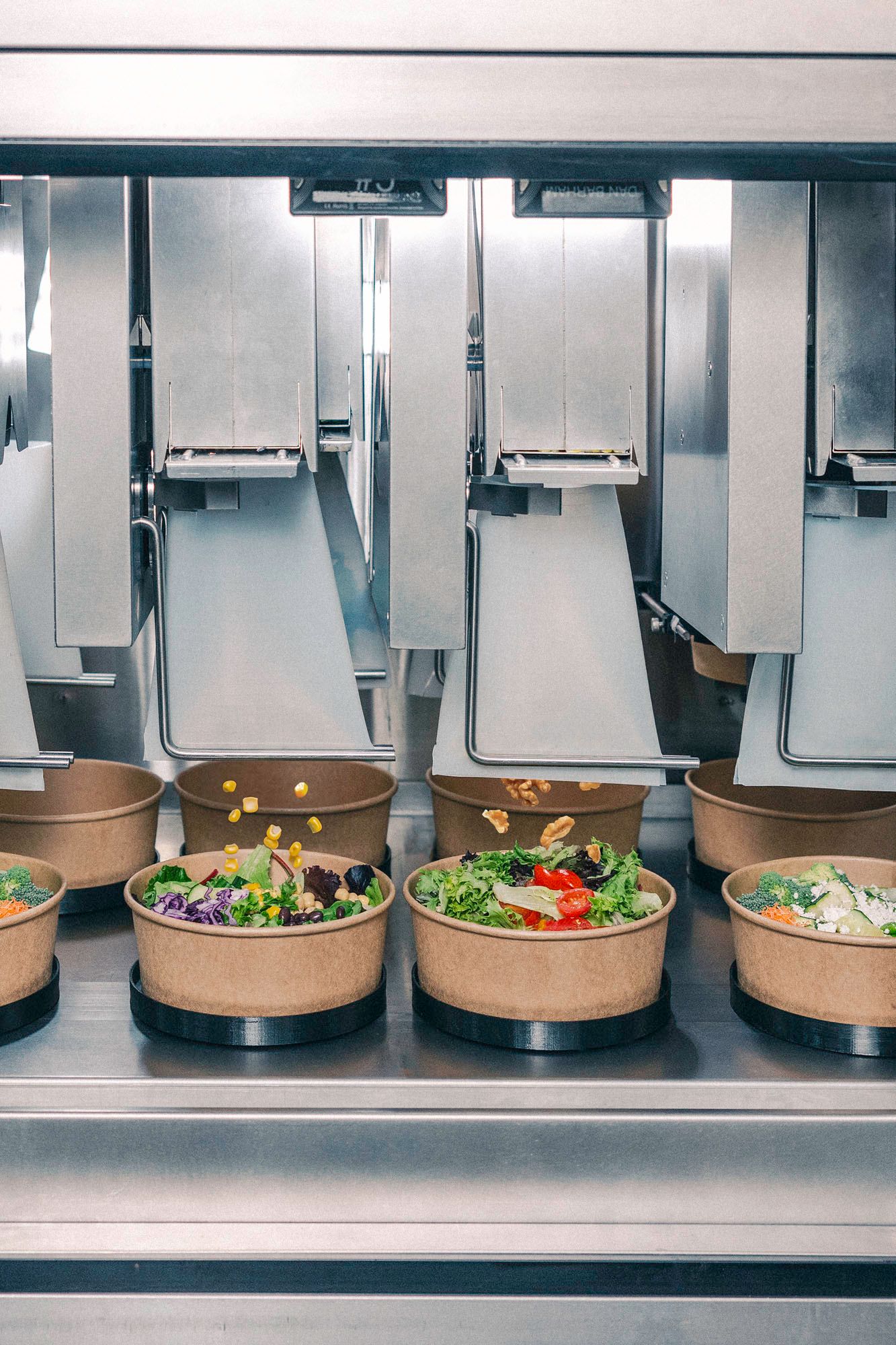
Remy automatically weighs and dispenses ingredients.
Robots lending a hand is no longer taboo. Automation continues to make waves in the restaurant industry, as operators look to offset labor and handle omnichannel ordering.
“If we look back five, six years ago, any operator would be so scared to talk about automation. Today, people are not scared. They see this as a future and are just waiting to see who can actually make it work,” said Sefidkar.
Kindell sees his future clearly.
“My endgame is a fully autonomous pizza restaurant,” he said.

